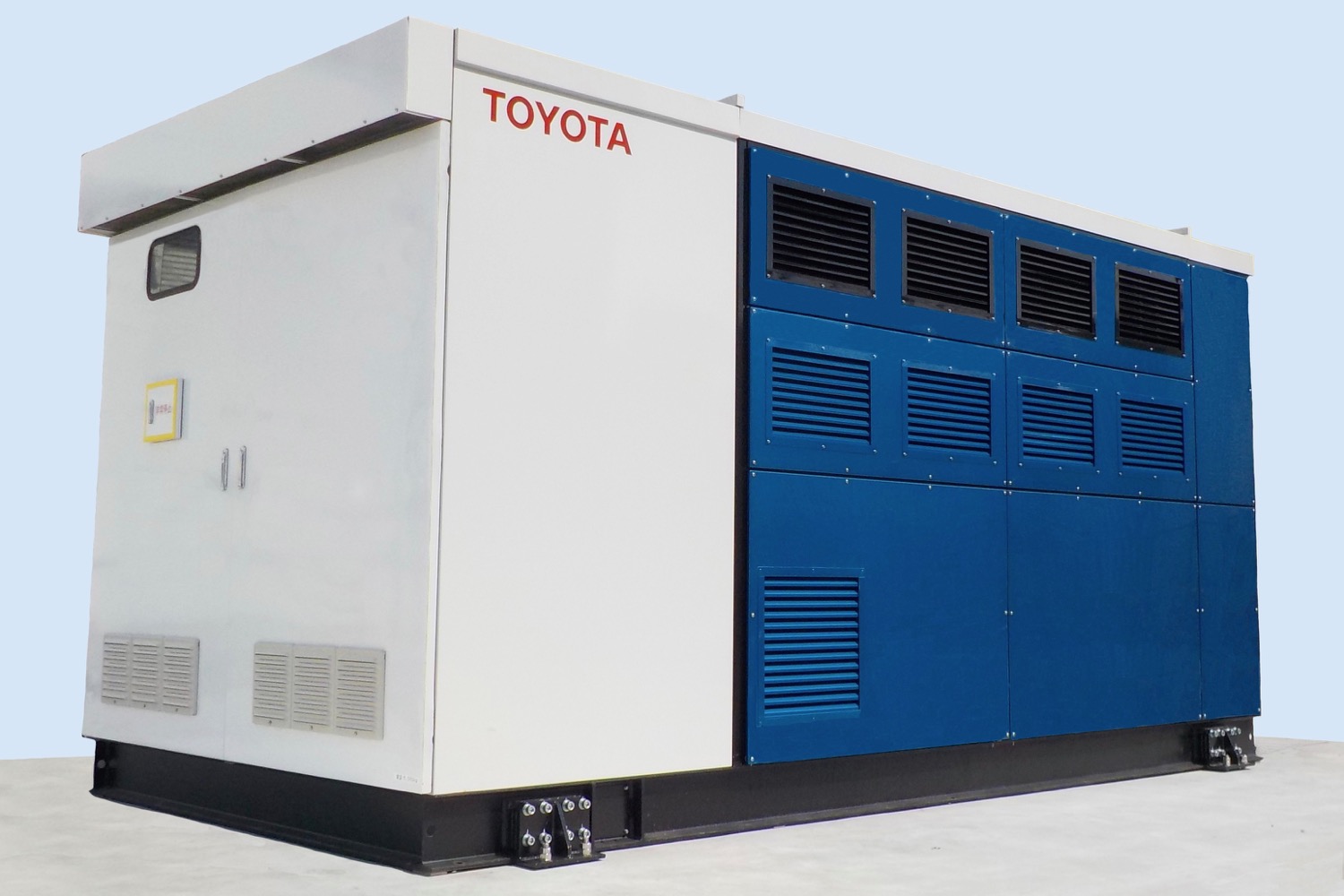
Toyota uses hydrogen fuel cells to power everything from ordinary passenger cars to lunar rovers, but it’s not stopping there. The Japanese automaker is testing the use of fuel cells to power one of its factories. An experimental fuel cell “generator” — built using components from the Toyota Mirai sedan — has been installed at the Honsha Plant, which is located part of the automaker’s main Toyota City campus in Japan. The test shows how fuel cells could provide zero emission electricity to buildings as well as vehicles.
The generator uses two complete Mirai fuel cell systems, according to Toyota. Each system includes a fuel cell stack (that’s the part that actually turns hydrogen into electricity), a power control unit, and a backup battery. Using components from the Mirai, instead of developing new components from scratch, helps keep costs down, according to Toyota.
Toyota plans to run the fuel cell generator 24 hours a day to generate electricity for the Honsha Plant. Toyota will monitor the generator’s efficiency (the amount of electricity produced from a given quantity of hydrogen), the generator’s ability to provide electricity consistently, and its durability and ease of maintenance. Assuming the tests go well, Toyota hopes to add fuel cell power to other factories.
The automaker even has a plan to produce hydrogen onsite at its factories. Toyota believes hydrogen can be produced as a byproduct from making fuel cell system components, although it’s unclear exactly how that will be accomplished. Finding a way to produce large quantities of hydrogen in an environmentally friendly way remains one of the major obstacles for fuel cells. Another major issue for fuel cell vehicles is the current lack of hydrogen stations.
Despite the problems, Toyota remains an evangelizer of fuel cells. The Toyota Mirai is one of only a handful of fuel cell cars available to customers. Toyota is also testing a fuel cell semi truck in California, plans to deploy fuel cell buses at the 2020 Tokyo Olympics, and is working with JAXA (the Japanese space agency) to develop a fuel cell lunar rover. The automaker’s enthusiasm for fuel cells is shared by the Japanese government. As Japan looks for an alternative to nuclear power in the wake of the Fukushima disaster, Prime Minister Shinzo Abe has proposed a “hydrogen society,” where fuel cells are used to power both vehicles and buildings.
The problem of getting enough hydrogen has led Toyota to hedge its bets, however. The automaker is now developing a battery electric car, which is tipped to use revolutionary solid state battery cells. It’s worth noting that batteries can be used to power buildings as well. In addition to making cars, Tesla sells stationary battery packs that can store electricity renewable sources, like solar panels.
Editors' Recommendations
- Hyundai bets big on hydrogen from sewage, plastic
- Airbus shows off striking design of proposed hydrogen-powered plane
- 2021 Toyota RAV4 Prime adds fuel efficiency and power in equal measure
- Hyundai’s hydrogen fuel cell truck makes hauling freight green and glamorous
- Hyundai cracks off two new land speed records in fuel cell, hybrid cars


